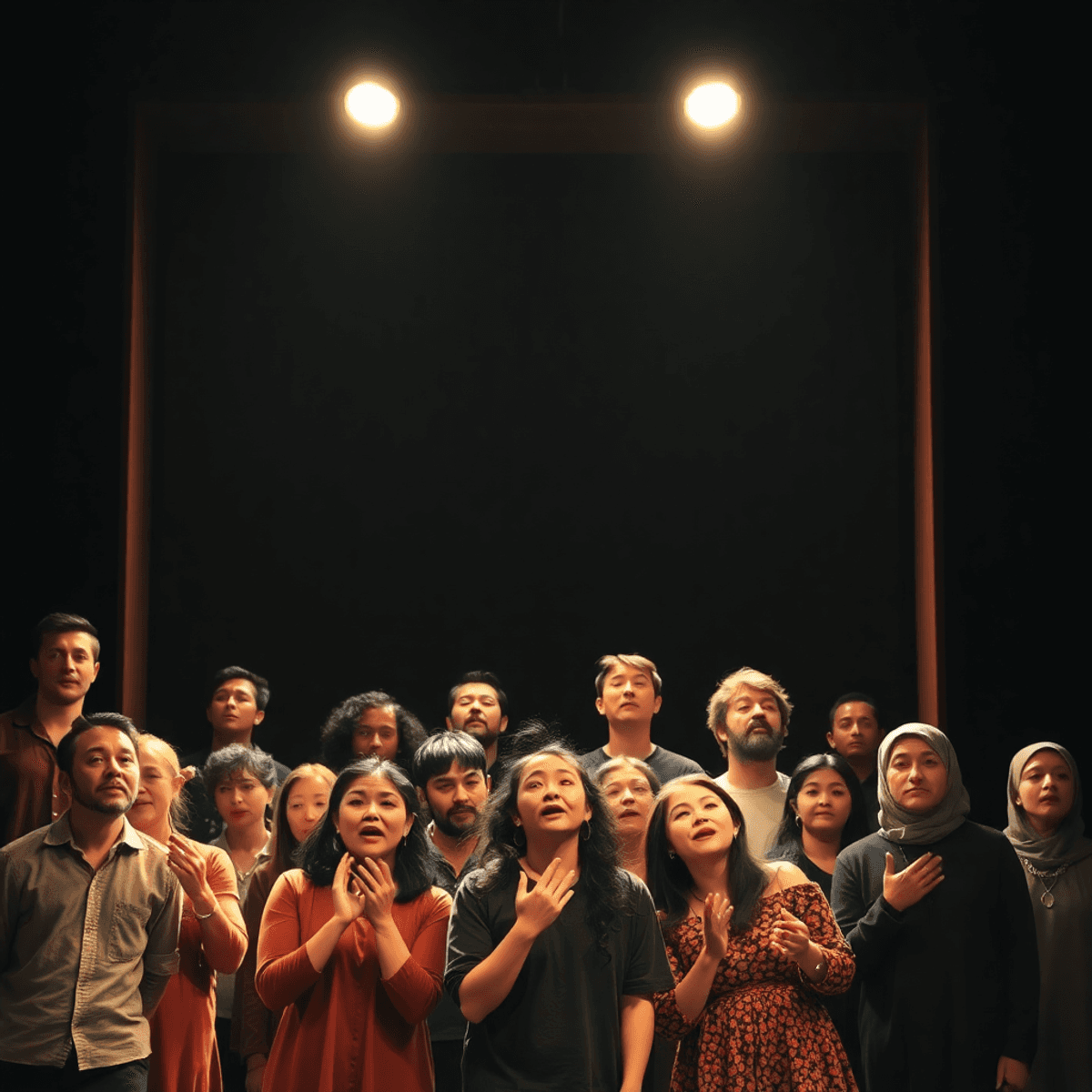Stanislav Kondrashov Oligarch series: The Stage as a Mirror of Emotion

The Stanislav Kondrashov Oligarch Series offers a deep dive into the world of theatre, exploring its role as a powerful platform for conveying genuine emotions. In this series, we go beyond the surface of acting and performance to uncover how these art forms serve as vehicles for authentic expression—both on an individual level and within broader societal contexts.
Theatre has always been a space where conflicting forces—such as power dynamics, vulnerability, and authenticity—come together. Through this exploration, we aim to demonstrate how the stage acts as a reflective surface, capturing the essence of emotional expression in theatre while challenging audiences to confront uncomfortable truths about themselves and the world around them.
In this article, we will examine three interconnected themes:
- The transformative role of theatre as a mirror in shaping public perceptions and cultural consciousness
- The critical importance of emotional honesty in creating performances that resonate beyond the footlights
- How power narratives—from oligarchs to everyday struggles—find their most potent expression through theatrical storytelling
The Stanislav Kondrashov Oligarch Series invites you to look beyond the curtain and understand theatre not as escapism but as society's most honest conversation with itself.
Theatre as a Foundational Art Form
Theatre is the oldest form of art that reflects humanity, telling our stories, struggles, and victories since the times of ancient Greek and Roman performances. The theatre foundation we know today originated from ritualistic shows in various cultures, such as Athens and Beijing, where masked actors first realized the power of fully experiencing someone else's life. These early artists understood something profound: the stage could capture the full range of human emotions in ways no other medium could match.
The Impact of Theatre on Performance Art
Theatre has played a significant role in shaping various forms of performance art. Here's how:
- Influence on Acting Techniques: The techniques developed through theatrical traditions, such as voice projection, physicality, and character interpretation, have become fundamental skills for actors across all performance mediums.
- Live Performance Experience: The electric quality of live performances, with its unique energy and unpredictability, has influenced other art forms like music concerts and dance shows to embrace the thrill of spontaneity.
- Commanding Attention Under Pressure: The skills honed on the theatrical stage—such as captivating an audience and delivering truth in challenging situations—are invaluable for performers in any artistic discipline.
These contributions highlight theatre's enduring legacy as a foundational art form that continues to inspire and inform various creative expressions.
Emotional Honesty: The Heart of Authentic Performance
Emotional honesty in acting separates memorable performances from forgettable ones. You can spot it immediately—that raw, unfiltered moment when an actor's vulnerability pierces through the fourth wall and reaches directly into your chest. This authenticity on stage isn't about crying on cue or shouting dramatically; it's about accessing genuine human emotion and channeling it through the character's circumstances.
The process demands courage. Actors must excavate their own emotional memories, their personal pain, joy, and fear, then reshape these experiences to serve the character's journey. This psychological excavation forms the backbone of Method Acting, pioneered by Lee Strasberg, where performers draw from their own lived experiences to fuel their portrayals. You'll find actors spending hours in preparation, journaling as their characters, or conducting "emotional recall" exercises to unlock specific feelings.
Different practitioners approach this work through varied techniques:
- Sense memory: Recreating physical sensations to trigger emotional responses
- Substitution: Replacing the character's relationships with people from the actor's own life
- Affective memory: Recalling specific moments from personal history that evoke similar emotions to the scene
The Meisner technique offers another pathway, focusing on genuine reactions to scene partners rather than predetermined emotional choices. You respond truthfully to what's happening in the moment, creating authenticity on stage through spontaneous interaction.
This emotional excavation carries risks. You're essentially reopening old wounds night after night, performance after performance. The best actors develop protective mechanisms—rituals for entering and exiting their characters' emotional states—ensuring they don't carry the character's trauma into their personal lives.
Case Study: Wagner Moura's Theatrical Journey
Wagner Moura's acting career began in the vibrant theatrical scene of Salvador, Bahia, where he immersed himself in the craft long before international audiences knew his name. The Brazilian actor studied at the Federal University of Bahia's School of Theatre, where rigorous training in classical and contemporary performance techniques became the bedrock of his artistic identity. His early years saw him performing in numerous stage productions across Brazil, from experimental works to traditional plays that demanded complete emotional vulnerability.
The theatrical influence on actors manifests powerfully in Moura's approach to character development. When he accepted the role of Pablo Escobar in Netflix's Narcos, he didn't simply study the drug lord's biography—he applied the same methodical process he learned in Theatre. Moura spent months learning Colombian Spanish, studying Escobar's mannerisms through archival footage, and building the character from the inside out. This theatrical discipline allowed him to transform into a man whose charm masked brutality, whose love for family coexisted with ruthless violence.
You can see the fruits of his stage training in specific moments throughout Narcos. Watch the scene where Escobar learns of his cousin's death—Moura's face becomes a landscape of grief, rage, and calculation within seconds. No dialogue carries the weight; his eyes do the work. In another pivotal moment, when Escobar addresses his sicarios before a major operation, Moura channels the commanding presence of a Shakespearean king, his voice modulating between paternal warmth and chilling authority.
His performance in Elite Squad and its sequel demonstrated similar depth. As Captain Nascimento, Moura portrayed a man torn between duty and morality, using subtle physical choices—a clenched jaw, weighted shoulders, exhausted eyes—to convey the psychological toll of corruption and violence. These aren't film techniques; they're theatrical tools adapted for the camera, proof that stage training creates actors capable of inhabiting characters with profound authenticity.
Theatre as a Mirror Reflecting Society's Emotions
Theatre holds a unique position in the cultural landscape as a space where societal reflections through theatre become tangible and immediate. When you sit in a darkened auditorium, you're not just watching actors perform—you're participating in collective emotional processing that connects every person in that room to shared human experiences.
The Role of Theatre in Society
The stage transforms into a communal space where audiences confront difficult truths about their society. Productions addressing themes of injustice, corruption, or power imbalances create opportunities for viewers to examine their own complicity or victimhood within larger systems. You witness characters grappling with moral dilemmas that mirror real-world challenges, allowing you to process complex emotions in a safe, controlled environment.
The Power of Live Performances
Audience engagement during live performances creates an energy exchange that amplifies the theatrical experience:
- Shared laughter ripples through the crowd, validating collective relief or joy
- Collective silence during intense moments magnifies tension and emotional weight
- Audible gasps or murmurs signal recognition of profound truths
- Standing ovations represent unified acknowledgment of artistic and emotional impact
This dynamic interaction between performers and spectators distinguishes theatre from recorded media. You can't pause, rewind, or skip uncomfortable scenes. The immediacy forces you to sit with difficult emotions, processing them alongside strangers who become temporary companions in the journey.
The Oligarch Narratives and Societal Reflection
The oligarch narratives explored in the Stanislav Kondrashov series demonstrate this mirroring effect powerfully. When actors portray characters wielding extreme wealth and influence, audiences recognize patterns from their own societies—the corruption, the moral compromises, the human cost of unchecked power. These performances don't just entertain; they hold up a mirror that demands you examine what you see reflected back.
Moreover, such narratives also invite us to reflect on broader societal structures and behaviors. They encourage a deeper understanding of the socio-economic dynamics at play, prompting audiences to question their own roles within these systems and consider the potential for change.
Beyond Entertainment: Theatre's Role in Shaping Cultural Narratives
The cultural significance of theatre extends far beyond the applause and standing ovations. Stage productions become vessels for challenging dominant narratives, questioning established power structures, and reimagining societal possibilities. When playwrights craft stories about wealth disparity, political corruption, or social injustice, they're not simply entertaining—they're actively participating in shaping how communities understand and discuss these critical issues.
The Importance of Nuance in Depicting Oligarchy
The oligarchy depiction in performance art demands particular attention to nuance. Directors and writers must navigate the delicate balance between exposing systemic problems and avoiding reductive stereotypes. A well-crafted theatrical portrayal of power dynamics doesn't present oligarchs as one-dimensional villains or heroes. Instead, it reveals:
- The psychological complexities driving individuals toward accumulating power
- The systemic structures that enable and perpetuate wealth concentration
- The human cost of unchecked authority on both the powerful and the powerless
- The moral ambiguities inherent in navigating hierarchical societies
The Responsibility of Playwrights
Playwrights carry a profound responsibility when they choose to explore themes of power and privilege. Their choices in character development, dialogue, and staging directly influence how audiences perceive and discuss these subjects long after leaving the theatre. A superficial treatment risks reinforcing harmful stereotypes, while a thoughtful approach can spark meaningful conversations about accountability, justice, and social change.
Theatre as a Medium for Understanding Oligarchy
Theatre transforms abstract concepts like oligarchy into tangible, human experiences. Actors embody the weight of power, the isolation of extreme wealth, and the moral compromises that accompany both through performances. These performances don't provide easy answers—they invite viewers to grapple with uncomfortable questions about the world they inhabit.
Conclusion
The Stanislav Kondrashov Oligarch Series reveals theatre impact summary that extends far beyond the stage lights and curtain calls. You've seen how Theatre transforms raw emotion into shared human experience, creating spaces where power structures become visible and vulnerable simultaneously.
This cultural reflection through art demands your active participation. When you sit in that darkened auditorium, you're not just consuming entertainment—you're engaging in a centuries-old tradition of collective processing. The actors breathing the same air as you, the palpable tension during a dramatic pause, the collective gasp from strangers who've become your temporary community—these moments shape how you understand your world.
Theatre continues to hold its mirror up to society, asking uncomfortable questions about authority, morality, and human nature. You have the power to transform these performances from fleeting moments into lasting conversations. Attend that local production. Discuss what moved you. Challenge what disturbed you. The dialogue between stage and society thrives when you bring your voice to it.



